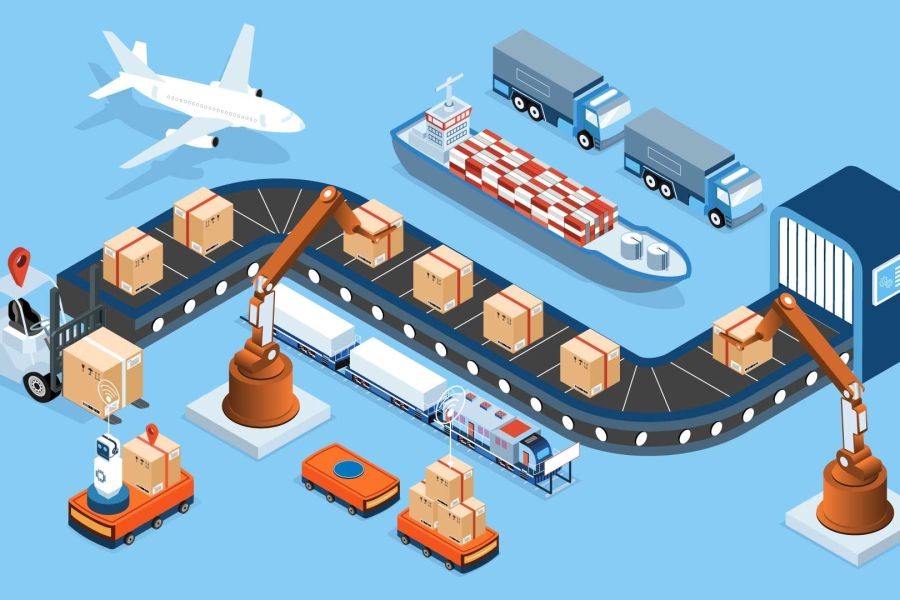In recent years, the logistics sector in Australia has faced a transformative challenge: the decision between traditional delivery trucks and electric vehicles (EVs). As Australia pivots towards a more sustainable future, this choice is becoming increasingly critical for agribusiness consultants and logistics companies alike. With the transportation sector contributing 19% of Australia's greenhouse gas emissions, according to the Australian Bureau of Statistics (ABS), the urgency to adopt greener logistics solutions is palpable.
The Current Landscape of Australia’s Logistics
Australia's logistics sector is vast, characterized by its expansive geography and diverse climate conditions. Traditional diesel-powered delivery trucks have long been the backbone of this industry, providing reliable service across long distances. However, the rise of electric vehicles has introduced a viable alternative, promising reduced emissions and operational costs. This shift is supported by the Australian Government’s commitment to achieving net-zero emissions by 2050, as outlined by the Department of Industry, Science, Energy and Resources.
Advantages of Traditional Delivery Trucks
- Established Infrastructure: Diesel fueling stations are ubiquitous, ensuring that traditional trucks can refuel almost anywhere across the country.
- Proven Reliability: Decades of use have honed the reliability of diesel engines, making them a trusted choice for long-haul journeys.
- High Load Capacity: Traditional trucks often boast higher load capacities compared to their electric counterparts, which is crucial for bulk deliveries.
Challenges of Traditional Delivery Trucks
- Environmental Impact: Diesel trucks are significant contributors to air pollution and greenhouse gas emissions.
- Rising Fuel Costs: Fluctuating fuel prices can impact logistics budgets, with the Australian Institute of Petroleum noting a 15% increase in diesel prices over the past year.
- Maintenance Costs: These vehicles often require more frequent and costly maintenance compared to EVs.
The Rise of Electric Vehicles in Logistics
Electric vehicles are rapidly gaining traction in Australia, driven by technological advancements and environmental incentives. The shift towards EVs is not just about reducing carbon footprints but also about harnessing new technologies to improve efficiency and cost-effectiveness.
Advantages of Electric Vehicles
- Lower Emissions: EVs produce zero tailpipe emissions, significantly reducing the environmental impact of logistics operations.
- Cost Efficiency: With fewer moving parts, EVs often have lower maintenance costs. Moreover, electricity is generally cheaper than diesel fuel, offering savings on operational costs.
- Government Incentives: The Australian Government offers various incentives for adopting EVs, including tax rebates and grants, supporting a smoother transition for businesses.
Challenges of Electric Vehicles
- Limited Range: Current battery technology limits the range of EVs, which can be a significant drawback for long-distance logistics.
- Charging Infrastructure: While expanding, the EV charging network is not yet as comprehensive as diesel refueling stations, particularly in remote areas.
- Initial Cost: The upfront cost of purchasing EVs can be higher, though this is often offset by lower running costs over time.
Case Study: Woolworths’ Transition to Electric Vehicles
Problem: Woolworths, one of Australia’s largest supermarket chains, recognized the environmental impact of its logistics operations, particularly the carbon emissions from its delivery fleet.
Action: In response, Woolworths initiated a transition towards electric delivery trucks, starting with a pilot program in Sydney. They partnered with SEA Electric, an Australian company specializing in EV technology, to retrofit existing trucks with electric drivetrains.
Result: Within the first year, Woolworths saw a reduction of 20% in fleet emissions. The company also reported a 30% decrease in maintenance costs, validating the economic benefits of EV adoption.
Takeaway: This case study underscores the potential for electric vehicles to significantly reduce both emissions and operational costs in logistics, supporting Australia’s broader sustainability goals.
Pros vs. Cons Analysis
Pros of Electric Vehicles:
- Sustainability: Aligns with Australia’s net-zero emissions target, providing a cleaner alternative to diesel.
- Operational Cost Savings: Lower fuel and maintenance costs can improve profit margins over time.
- Brand Image: Companies using EVs can enhance their reputation as environmentally responsible businesses.
Cons of Electric Vehicles:
- Range Limitations: Current battery technology may not support long-haul logistics without frequent recharging.
- Infrastructure Gaps: Limited charging stations in rural and remote areas could hinder operations.
- High Initial Investment: The upfront cost for EVs is higher, which may be prohibitive for some businesses.
Debunking Common Myths
Myth: Electric vehicles cannot handle heavy loads.
Reality: Advances in battery and motor technology have enabled EVs to support competitive load capacities, suitable for a variety of logistics operations.
Myth: The environmental benefits of EVs are negligible due to battery production emissions.
Reality: While battery production does emit greenhouse gases, over a vehicle’s lifespan, EVs have a significantly lower environmental impact compared to traditional trucks.
Embracing the Future of Logistics
The choice between traditional delivery trucks and electric vehicles is pivotal for Australia’s logistics sector. With the government’s focus on sustainability and the evolving technological landscape, the transition to electric vehicles represents not just an environmental imperative but also an economic opportunity. As battery technology and infrastructure improve, EVs are poised to become the backbone of Australia’s logistics industry.
Final Takeaways
- Electric vehicles offer a sustainable and economically viable alternative to traditional delivery trucks.
- Government incentives and evolving technologies make the transition increasingly feasible for businesses.
- While challenges remain, particularly regarding range and infrastructure, ongoing advancements are set to address these issues.
- Companies should consider adopting EVs to align with sustainability goals and capitalize on long-term cost savings.
As Australia continues to innovate and adapt to changing environmental and economic demands, the logistics industry stands at the forefront of this transformation. Businesses that embrace electric vehicles will not only contribute to a more sustainable future but also position themselves as leaders in a rapidly evolving market.
People Also Ask
How do electric vehicles impact logistics businesses in Australia?
Electric vehicles can reduce operational costs by 30% due to lower fuel and maintenance expenses, while aligning with sustainability goals, according to a report by McKinsey.
What are the biggest misconceptions about electric vehicles in logistics?
One common myth is that EVs cannot handle heavy loads. However, technological advancements have improved their load capacity, making them suitable for logistics operations.
Related Search Queries
- electric vehicles in Australian logistics
- traditional vs electric trucks Australia
- sustainability in logistics Australia
- EV charging infrastructure in Australia
- government incentives for electric vehicles Australia

































gilbertinaglas
9 months ago